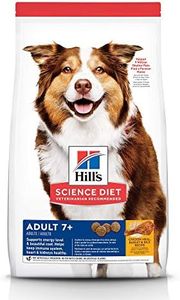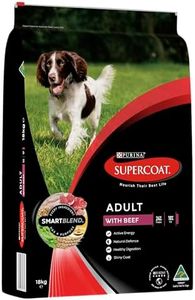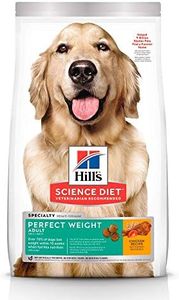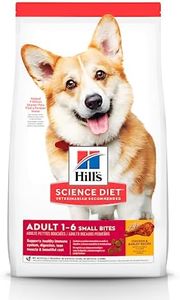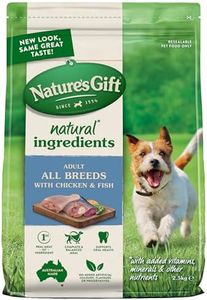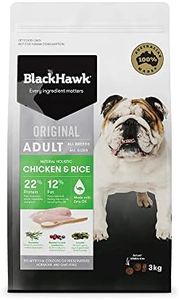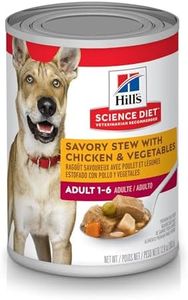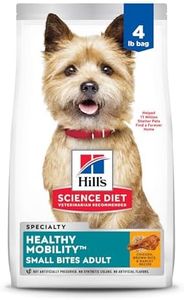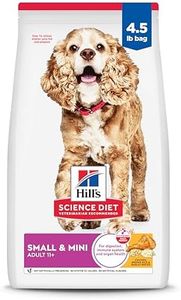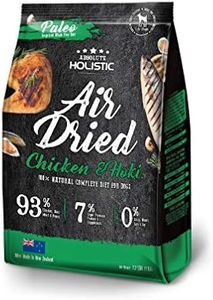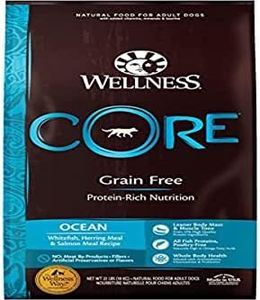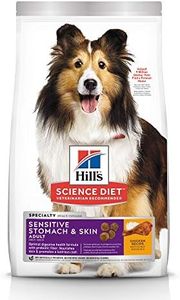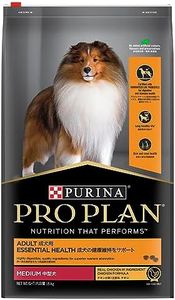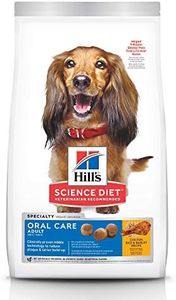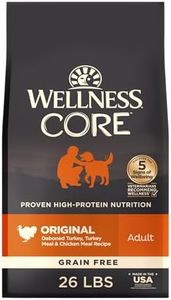We Use CookiesWe use cookies to enhance the security, performance,
functionality and for analytical and promotional activities. By continuing to browse this site you
are agreeing to our privacy policy
10 Best Dachshund Food
From leading brands and best sellers available on the web.Buying Guide for the Best Dachshund Food
Choosing the right food for your dachshund is crucial for their health, energy, and overall wellbeing. Dogs of different breeds, ages, and activity levels have unique nutritional needs, and dachshunds in particular are prone to obesity and certain health issues because of their long backs and small frames. When selecting food, consider your dog's unique situation: their age, activity level, and any health concerns. Understanding the key features of dog food will help you make an informed decision that supports your dachshund’s long-term health.Protein ContentProtein is an essential nutrient for dogs, supporting muscle maintenance, repair, and overall bodily functions. For dachshunds, sufficient protein helps keep their bodies strong without contributing too much to excess weight. Dog foods vary widely in protein content. Lower-protein foods may have around 18–20% crude protein, moderate ranges are between 22–26%, and high-protein options exceed 28%. Active or younger dachshunds might thrive with higher protein, while older or less active dogs may benefit from moderate levels. Consider your dog's age, lifestyle, and veterinary recommendations when deciding.
Fat ContentFat provides energy and supports healthy skin and coat, but too much can contribute to weight gain. Fat content in dog food usually ranges from 8% to 18%. Lower-fat foods (8–10%) are suitable for less active, overweight, or senior dachshunds to help manage weight. Moderate fat (10–15%) works well for most adult dogs, while higher fat (15% and up) may suit very active or working dachshunds. Match the fat content to your dog's energy needs and consult a vet if you're unsure.
Kibble Size and TextureThe size and texture of the food—especially with kibble—can influence how easily your dachshund can chew and digest their meals. Small breeds like dachshunds benefit from smaller, bite-sized kibble that’s easier on their jaws and teeth. Kibble that’s too large or hard may pose a choking risk or dental strain. If your dachshund is a puppy, has dental issues, or is older, look for specifically designed small-breed kibble or softer options.
Ingredient QualityIngredient quality refers to the sources of protein, grains, and other nutrients in your dog's food. Whole, recognizable ingredients such as real meat, vegetables, and named grains are generally preferable over by-products, fillers, or artificial additives. Foods with easily digestible carbohydrates and minimal artificial additives can support your dachshund’s digestive and overall health. If your dog has allergies or sensitivities, look for limited-ingredient or grain-free recipes.
Special Nutritional AdditionsSome foods are formulated with extra nutritional benefits like joint support (glucosamine and chondroitin), omega fatty acids for skin and coat, or probiotics for digestion. Dachshunds are prone to back and joint concerns, so food with added joint support may be useful. Puppies and older dogs might benefit from enhanced nutrients targeting their specific stage of life. Match these additions to your dog’s age, health profile, or veterinary advice.
Life Stage AppropriatenessDog food is often labeled for different life stages such as puppy, adult, or senior. Puppies need extra calories and nutrients for growth, adults require balanced maintenance formulas, and seniors often need fewer calories with enhanced support for aging bodies. Feeding the proper food for your dachshund’s life stage helps avoid over- or under-feeding and supports optimal health.
